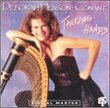| All Artists: Carl Maria von Weber, Rafael Kubelik, Bavarian Radio Symphony Orchestra, Arleen Auger, Birgit Nilsson, Donald Grobe, Hermann Prey, Julia Hamari, Marga Schiml, Plácido Domingo Title: Weber: Oberon Members Wishing: 0 Total Copies: 1 Label: Deutsche Grammophon Original Release Date: 1/1/2006 Re-Release Date: 4/11/2006 Genre: Classical Styles: Opera & Classical Vocal, Historical Periods, Modern, 20th, & 21st Century Number of Discs: 2 SwapaCD Credits: 2 UPCs: 028947756446, 028947756446 |
Search - Carl Maria von Weber, Rafael Kubelik, Bavarian Radio Symphony Orchestra :: Weber: Oberon
 | Carl Maria von Weber, Rafael Kubelik, Bavarian Radio Symphony Orchestra Weber: Oberon Genre: Classical
![header=[] body=[This CD is available to be requested as disc only.]](/images/attributes/disc.png?v=4eeb5dd5) ![header=[] body=[This CD is available to be requested with the disc and back insert.]](/images/attributes/disc_back.png?v=4eeb5dd5) ![header=[] body=[This CD is available to be requested with the disc and front insert.]](/images/attributes/disc_front.png?v=4eeb5dd5) ![header=[] body=[This CD is available to be requested with the disc, front and back inserts.]](/images/attributes/disc_front_back.png?v=4eeb5dd5) |
Larger Image |
CD DetailsSimilar CDs
Similarly Requested CDs
|
CD ReviewsFairy music for big voices! Rev. Ben Cox | Orlando, Florida | 09/04/2006 (5 out of 5 stars) "This recording is sensational!! I cannot say to much! Kubelik handles the orchestra like gossamer. The cast is all star quality with Domingo singing beautifully and the late Birgit Nilsson (Whom I met once) at her peak. Her rendition of "Ozean Ungeheur" (spelling may be off) is simply stunning! Her attack on the first note is a voice lesson by itself, followed by such singing as to give a student a whole course in vocal emission by the end of it. Donald Grobe is superb as Oberon and the others do a great job also. Listen to Arleen Auger sing the Meermadchen! I guarantee you will love this recording and the price is agreeable too. Don't let this one pass you by! " Fine music ... but unspeakably lame and mangled libretto L. E. Cantrell | Vancouver, British Columbia Canada | 04/04/2007 (3 out of 5 stars) "SOURCE: This recording was made as a co-production with Bavarian Radio, Munich. From that and the presence of so many native German speakers in the non-singing parts, I presume that this is a studio-recorded performance intended primarily for broadcast and then secondarily for release on disk. It was recorded at the Herculessaal der Residenz, Munich, in March and December of 1970, then released in 1971. Deutsche Grammophon has issued this performance on three occasions. This is the most recent re-issue and the most barebones. SOUND: Good 1970s analogue stereo in a satisfactory digital remastering. CAST (SINGING): Oberon, King of the Elves - Donald Grobe (tenor) Puck, an attendant spirit to Oberon - Marga Schiml (mezzo-soprano) Huon of Bordeaux, Duke of Guienne - Placido Domingo (tenor) Scherasmin, Huon's squire - Hermann Prey (baritone) Rezia, daughter of Haroun al Raschid, Caliph of Baghdad - Birgit Nilsson (soprano) Fatima, Rezia's confidant - Julia Hamarl (mezzo-soprano) First and Second Mermaid - Arleen Anger (mezzo-soprano) CONDUCTOR: Rafael Kubelik with the Symphonie-Orchester und Chor des Bayerischen Rundfunks. CAST (SPEAKING): Oberon, King of the Elves - Martin Benrath Puck, an attendant spirit to Oberon - Doris Masjos Droll, a spirit who explains things and sets scenes - Uwe Friedrichsen Huon of Bordeaux, Duke of Guienne - Gerhard Friedrich Scherasmin, Huon's squire - Hans Putz Haroun al Raschid, Caliph of Baghdad - Hans Paetsch Rezia, daughter of Haroun al Raschid - Katharina Matz Fatima, Rezia's confidant - Ingrid Andree Babekin, Prince of Persia - Rolf Nagel Almansor, Emir of Tunis - Heinz Ehrenfreund Abdallah, a pirate - Hubert Suscka TEXT: A hopeless mess. "Oberon" is a romantic opera that is almost always presented in a version based on a German translation by Theodor Hell of an English entertainment by James Robinson Planche ~ that was based on an original German poem written by Christoph Martin Wielands ~ that was loosely based on a 13th Century Geste in Medieval French called "Huon de Bourdeaux" ~ that contains some vague and distorted memories of events that took place in the 9th Century. By universal consensus, Planche completely botched the task of creating a viable libretto. The particular version recorded here is based on a planned but unproduced stage revival. It is distinguished from other versions by the presence of a speaking character called Droll whose task is to explain to the audience where the opera is supposed to be taking place and what is going on. He is a particularly handy character to have hanging around in a radio broadcast. The Good Grey Gramophone Magazine has remarked that "Oberon" can "never be a repertory opera (particularly since those who attempt improvements to the original dramatic shambles usually end up by making matters worse)". It has also described Planche's verses as "dire." Here is an example of that: "Merrily, merrily let us sail! / Over the sea by her light so pale, / Over the sea let us sail by her light so pale / Merrily, merrily let us sail!" And this, "Hence! Hence! The flowers ye proffer fair, / Poison in their fragrance bear, / And the goblet's purple flood / Seems to me a draught of blood." Dire, indeed! COMMENTARY: James Robinson Planche (1796-1880) had a double career. On the one hand he was an exceedingly learned antiquarian and a member of the English College of Heralds. For some years he was the man who made quick trips overseas to deliver the regalia of the Order of the Garter to whatever reigning monarch had just been granted the honor. On the other hand, he was a man of the lowbrow popular theater, a specialist in gaudy and dazzling extravaganzas. He might be regarded as the godfather of the English Panto. Carl Maria von Weber (born 1786) had already achieve an overwhelming international success with "Der Freischuetz" and a lesser one with "Euryanthe" (hobbled by a weak libretto.) In 1824, Covent Garden in London commissioned an opera from him to be based on the poem "Oberon." In 1826, the tubercular composer journeyed to London to complete the opera and to oversee its first performances. He was present on opening night, April 12th. He was fully aware that the English libretto was massively in need of improvement and it was his intention to return home and recast the whole thing into a much more effective German opera. Before he could do that, he died in London on June 5, 1826. "Oberon" in the form that it has come down is an opera only by convention. It is certainly not a music drama as the term might be understood by Gluck, Wagner, Puccini or even Handel. It its best to regard it as a series of individual numbers, some of them very good by anybody's standards. At least one of them is a standard heavy soprano warhorse, "Ocean! Thou mighty monster!" much better known as "Ozean, du Ungeheuer!" The musical portions of this recording are performed quite admirably. Nilsson, Domingo and Prey are impressive members of anyone's A-list of singers. Kubelik makes as much of the intractable material as anyone could reasonably hope. The spoken portions of the drama, with the interpolated Droll and the actors whose voices generally haven't any resemblance to those of the singers, are a waste of perfectly good space on the plastic disks. For the music alone, I would endorse those high ratings already given by earlier reviewers. But for the abject failure of the piece to blend into something greater than the sum of its parts, my overall rating is three stars." An outstanding musical experience Marky Marc | Florida, USA | 01/18/2007 (5 out of 5 stars) "Weber at his best. There is hardly any way for anyone to listen to this recording without getting the same feelings that come when watching a great sunrise or sunset. It is a musical discovery for me because of the musical quality of the recording. Weber never sounded so good!"
|

 Track Listings (21) - Disc #1
Track Listings (21) - Disc #1









